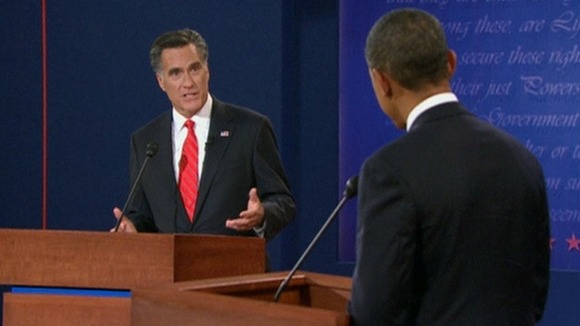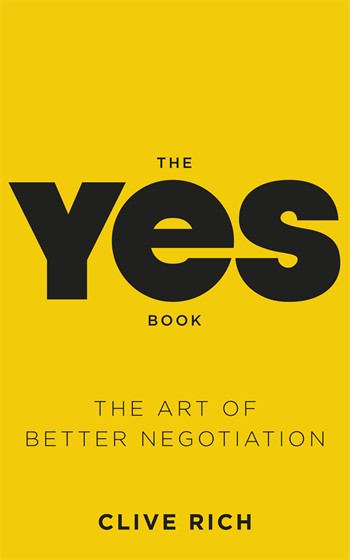 The first televised debate between Mitt Romney and President Obama has thrown up a welter of analysis.
The first televised debate between Mitt Romney and President Obama has thrown up a welter of analysis.
Most pundits seem to agree that Romney performed better than the President without delivering a knock-out blow. Experts have argued that Obama ‘s low key performance was the result of a variety of factors; from unassertive body language (a reaction against criticism from some corners of the media that he had been ‘too confrontational’ during a speech the night before?), to lack of recent practice in the white heat of live political debate, to complacency in the face of an opponent who can normally be relied on shove his foot firmly in his mouth at some point.
From a negotiating point of view it was interesting to watch the different negotiating tactics deployed by the candidates. This, after all, is a negotiation for the hearts and minds of the US electorate. One of the keys to successful negotiation is to select the right negotiating behaviour to influence the person you are dealing with. Every individual is different, and has different traits and patterns of thinking. So, different negotiating behaviour is normally called for in each deal. If you select a behaviour which resonates with the way that the person on the other side routinely interprets the world, then you have a better chance of influencing them.
Working with the Social Norms
Of course, this creates a problem when you are trying to influence 250 million people at once. In these circumstances it pays to work with social norms which are apparent among that group – typical behaviours or patterns of thinking which are by no means displayed by everybody but which are typical of the audience you are addressing. Normally I am wary of using these social norms in one-to-one negotiations because they can lead you astray when dealing with particular individuals who do not fit the average. However, if you are dealing with such a massive group as the whole of the US electorate all at once, then social norms or averages are the best thing you have to work with.
Looked at this way it was fairly clear that for the purposes of the first TV debate, Mitt Romney worked more effectively with those social norms than President Obama did. Here are some examples;
1) There is a social norm – an average – in the US to “just do it”. This kind of enthusiastic pragmatism creates a lot of activity – Americans are prone to just jump in and get started without too much navel gazing and many Americans respond well to the same behaviour in others. Romney tapped into this well with a fairly punchy performance, and repeated calls for instant action. Obama by contrast appeared rather slow and ponderous – almost too thoughtful and intellectual to be able to make the most of this trait.
2) There is also a social norm in the US which favours “I” behaviour – it’s ok to focus on your own agenda and your own achievements. Romney has no problem doing this and uses a lot of “I” behaviours – especially “stating expectations” and “testing and probing” the other side’s positions. He was also noticeably selfish in his conduct of the debate – interrupting regularly and grabbing extra time for his own comments. Obama is by nature more inclusive – more naturally inclined to utilise “you” behaviour which focuses on the other person’s agenda. This may make him more likeable – especially in countries like the UK where it reflects some of our own social norms. But the US is the land of the “hard sell” and it may be that for the purpose of the first TV debate Obama was too self-effacing.
3) Finally, there is a US social norm of being very “associated”. Americans are often very animated and ‘in the moment’ when they speak. The opposite of this is being “dissociated” – seeming distant and elsewhere. Romney was very “present” and animated in the debate. The President however was uncharacteristically subdued and uninspiring. Perhaps he was aiming to demonstrate dignified statesmanship – but he seemed somewhat detached and introspective, as if his focus was somewhere else.
History favours Obama
Fortunately for him, President Obama has a number of inherent advantages in this negotiation;
1) He has the authority of an incumbent President and authority is a great source of bargaining power.
2) He is also a man with whom the electorate has an existing relationship as President.
There is research on influencing to suggest that those with an existing relationship with the other side have an advantage in negotiations (as against potential new deal partners). This is because, once we have shown commitment to someone through an existing relationship, we are always keen to maintain that relationship in order to demonstrate to ourselves that we made the correct choice.
Since 1980 only two incumbent Presidents have been defeated at the polls – Carter and George Bush senior. However, the first TV debate will have provided an uncomfortable jolt for the President. Expect that in the second TV debate we see a more dynamic performance from Obama with negotiation behaviour which matches some of the general social characteristics of the audience he is seeking to influence….

